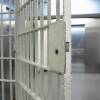The COVID-19 pandemic has wreaked havoc on vulnerable communities in Massachusetts. This week the Supreme Judicial Court will hear oral arguments in two appeals that concern the impact of the public health crisis on prisoners. Northeastern law professor and GBH News legal analyst Daniel Medwed joined GBH's Morning Edition today to discuss. This interview has been edited for clarity and length.
Joe Mathieu: Over the past year we’ve heard a lot about how COVID-19 has affected people behind bars. What’s the first case on the SJC calendar about?
Daniel Medwed: Just to frame the conversation, you’re right — COVID has disproportionately harmed the incarcerated population. Data show that about 17,000 people were in state or county lockup in Massachusetts at the onset, and as of the beginning of April 2021, more than 4,600 of them have tested positive. Many people argue, and for good reason, the risks posed by COVID-19 should serve as a thumb on the scale of release. Decarceration, reducing overcrowding, helps everyone. But now that the tide of the pandemic is turning a bit, the question is how courts should treat COVID-19 considerations going forward. One SJC case tomorrow morning, Commonwealth v. McDermott, tackles that issue. It concerns whether judges may consider whether a person has been infected with COVID and recovered, or been vaccinated, in deciding whether they deserve to have their sentence delayed while appeals play out. There’s precedent for the idea that medical conditions should not be used against a person in the carceral setting and the defense argument flows from that.
Mathieu: Interesting. Daniel, what about the second case?
Medwed: That one is also scheduled for Wednesday. Emma v. the Mass. Parole Board, concerns something known as “medical parole.” In 2018, we passed a law that makes inmates eligible for “medical parole due to a terminal illness or permanent incapacitation” that makes them no risk for public safety and the Department of Corrections is essentially in control of deciding this. The issue in Emma revolves around what happens when an inmate violates the terms of the medical parole and gets sent back for what’s called a parole “revocation” hearing. What types of protections are available during that revocation proceeding? Is the person subject to the Parole Board’s general procedures or is there something unique about medical parole that warrants different treatment? May the Parole Board “re-parole” the person even if they’ve violated the terms of release or is it up to [the department of] Corrections? While that whole hearing process was playing out, the prisoner was kept in custody and contracted COVID-19, which required hospitalization.
WATCH: Daniel Medwed on the legal arguments around considering COVID-19 and sentencing
Mathieu: That seems like a pretty technical case about how to divide powers within the government, but obviously also ties into some bigger policy questions.
Medwed: You’re absolutely right. It is a rather technical case — about which entity controls the medical parole revocation process, Corrections or the Parole Board — but it really is about a larger public policy issue: How nimble and compassionate should we be in addressing the health issues of prisoners? My instinct is that we need to be more flexible in responding to public health emergencies that disproportionately harm the incarcerated and moving toward greater decarceration in general.








